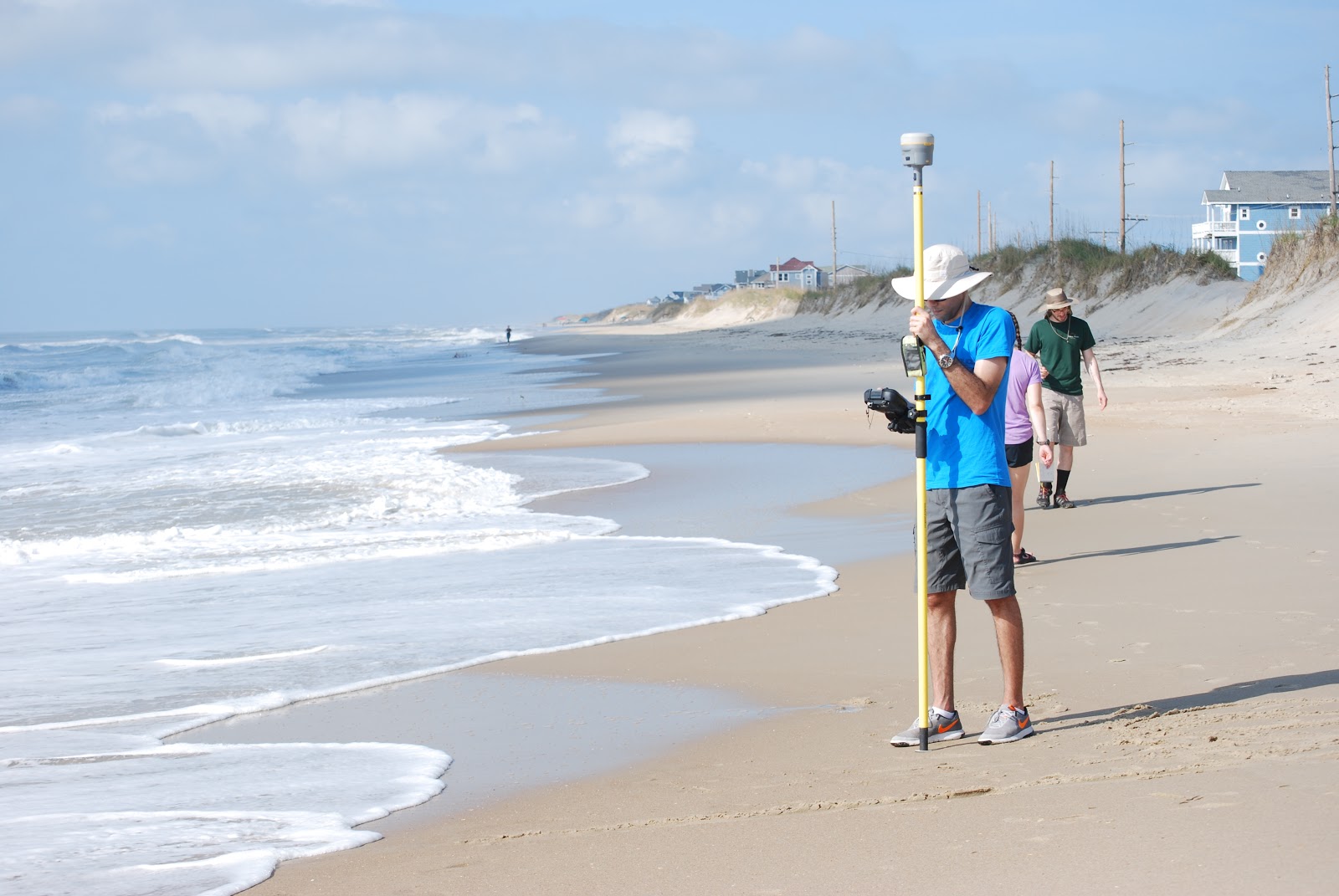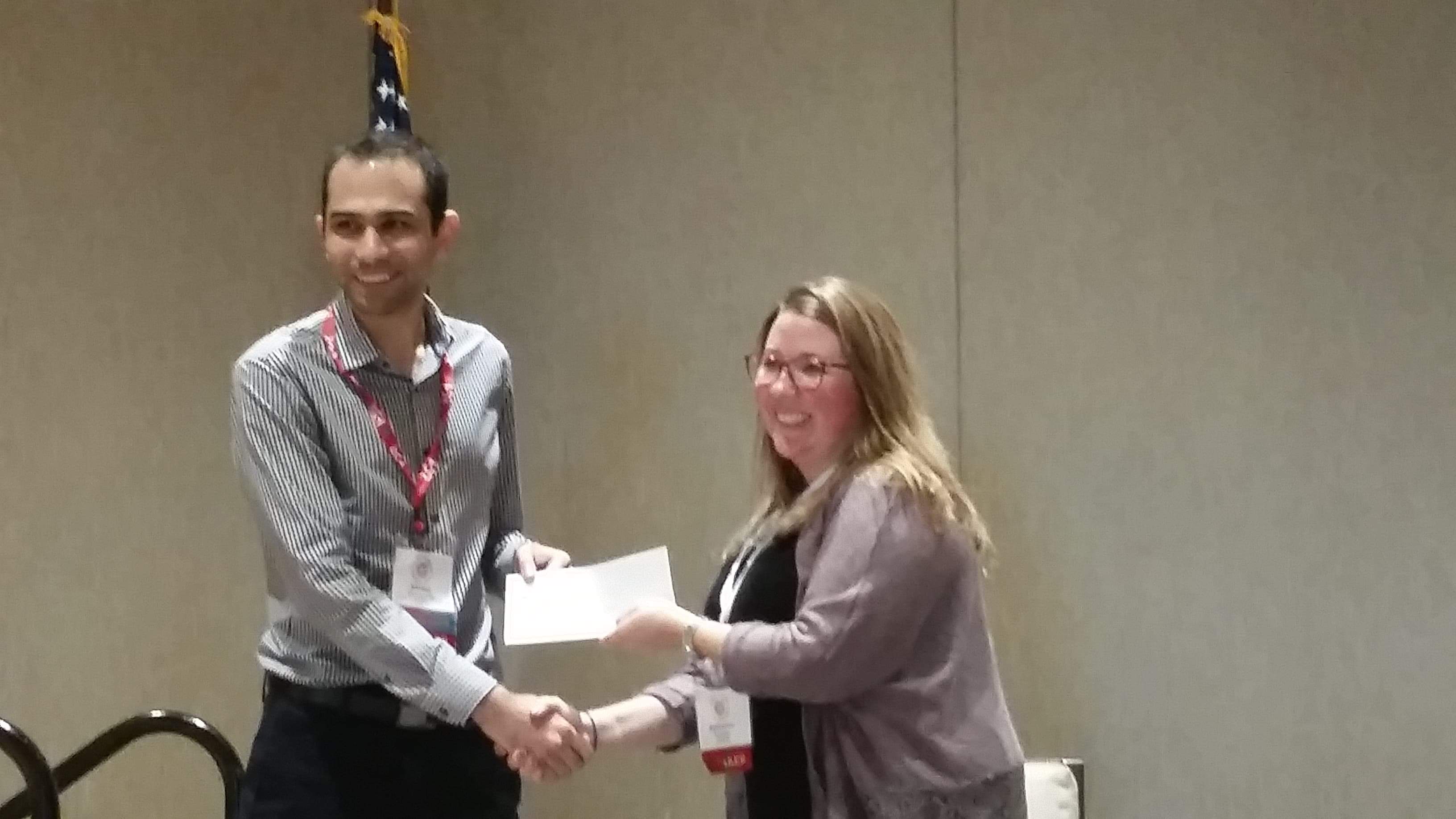
This animation shows the storm-driven dune erosion and breaching on a barrier system. This is part of Alireza’s erosion and breaching modeling research.


This animation shows the storm-driven dune erosion and breaching on a barrier system. This is part of Alireza’s erosion and breaching modeling research.
Alireza Gharagozlou (below) is a doctoral student in the Department of Civil, Construction, and Environmental Engineering at NC State University. He studies how to connect predictions of beach and dune erosion to community-wide flooding and serves with Casey Dietrich on NC State’s Coastal & Computational Hydraulics Team. North Carolina Sea Grant has supported their work.

Alireza surveying the beach profile near Hatteras, NC, with RTK-GPS after Hurricane Florence.
2019/04/26 – NC Sea Grant Coastwatch Currents
Model Predicts Storm Impacts on Beaches and Dunes
During storms, strong waves and currents can erode beaches and dunes and create low-lying areas vulnerable to flooding. We use field surveys and a computer model called XBeach to predict this erosion, as well as to understand its interactions with storm-driven flooding of larger regions.
Computer models allow us to see how the storm surge and waves impact the beach over time, and which locations are vulnerable to large-scale damage. Good predictions of such storm impacts help emergency managers take better-informed measures to protect coastal areas. Understanding vulnerabilities also instructs highway access design and residential area planning.
We used the XBeach computer model on more than 30 kilometers of Hatteras Island between Avon and Rodanthe to explore how to connect erosion predictions to larger areas. Could XBeach cover more of the island, yet still provide good erosion predictions at beach and dune scales? And how could we connect erosion predictions to other models for storm surge and flooding?
Ph.D. student Alireza Gharagozlou won the Student Educational Award at the ASBPA National Coastal Conference 2018. This award is given annually to an undergraduate or graduate student who, through his or her research, is furthering the state of the science of coastal systems as it relates to the goals and mission of the ASBPA. Congrats to Alireza!

Alireza accepts the Student Educational Award during the awards luncheon at the ASBPA National Coastal Conference.